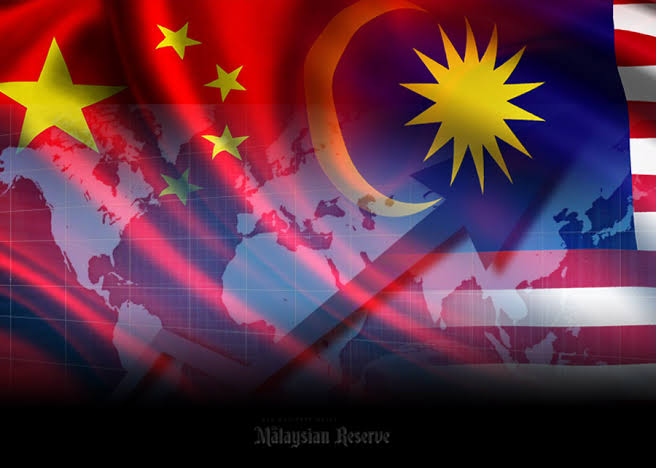In the complex and often contentious arena of the South China Sea, Malaysia has long been known for its strategic balancing act—one that involves maintaining robust economic ties with China while defending its sovereign rights in the contested waters.
However, recent developments suggest that Malaysia is inching closer to Beijing, raising concerns about the implications for regional stability and its relations with other Southeast Asian nations and global powers.
Economic Cooperation Takes Center Stage
As the world’s second-largest economy and Malaysia’s largest trading partner, China’s influence on Kuala Lumpur is undeniable. In recent years, economic cooperation between the two nations has deepened, with significant Chinese investments flowing into Malaysia’s infrastructure, technology, and energy sectors. This growing economic interdependence has led to closer political ties, with Malaysia increasingly aligning itself with China on certain geopolitical issues.
Tiao Hui Huat: The Malaysian Billionaire’s Downfall in a Global Money Laundering Scandal
Prime Minister Anwar Ibrahim’s administration has continued this trend, emphasizing the importance of maintaining strong economic ties with China despite the ongoing maritime disputes in the South China Sea. In his April 2023 visit to Beijing, Anwar reaffirmed Malaysia’s commitment to its economic partnership with China, while also acknowledging the delicate nature of the South China Sea issue. This balancing act, however, has not gone unnoticed, with some analysts suggesting that Malaysia is tilting further towards China, potentially at the expense of its relationships with other regional players and traditional allies like the United States.
Quiet Diplomacy Amid Maritime Tensions
While Malaysia has not formally shifted its stance on the South China Sea, its approach to the dispute has become increasingly nuanced. Kuala Lumpur continues to assert its territorial claims within its exclusive economic zone (EEZ), rejecting China’s expansive nine-dash line, which Beijing uses to justify its claims over most of the South China Sea. Despite these assertions, the country has opted for a quieter diplomatic approach compared to other claimant states like Vietnam and the Philippines.
This quiet diplomacy is evident in Malaysia’s handling of incidents involving Chinese vessels within its EEZ. Rather than confronting China head-on, it has chosen to downplay these incidents, prioritizing dialogue and negotiation over public confrontation. This approach, while aimed at preserving peace and stability in the region, has led to perceptions that Malaysia is increasingly accommodating China’s interests.
Foreign Minister Mohamad Hasan’s recent comments at the Asean Ministerial Meeting further fueled these perceptions. He reiterated Malaysia’s position that regional disputes, including those in the South China Sea, should be resolved through dialogue among the involved parties, without external interference. While this stance aligns with Asean’s broader principles, it also mirrors China’s long-standing position on the issue, raising questions about Malaysia’s alignment in the broader geopolitical context.
Malaysia’s Bold Stand: Saifuddin Nasution Rejects US Sanctions, Aligns with Iran on Oil Policies
Regional and Global Implications
The country’s deepening ties with China come at a time of heightened tensions in the South China Sea, where competing territorial claims have led to a series of confrontations involving China, Vietnam, the Philippines, and other regional players. The United States, which has increased its military presence in the region in support of freedom of navigation operations, has also been vocal in its opposition to China’s maritime claims.
As Malaysia draws closer to China, it risks alienating its Southeast Asian neighbors, particularly Vietnam and the Philippines, both of which have taken a more assertive stance against Beijing’s claims. Furthermore, Malaysia’s relationship with the United States could come under strain if Kuala Lumpur is perceived as too closely aligned with Beijing, especially given Washington’s strategic interests in maintaining a free and open Indo-Pacific.
Domestically, Prime Minister Anwar Ibrahim’s handling of the South China Sea dispute has been met with mixed reactions. While some view his approach as pragmatic and necessary to safeguard Malaysia’s economic interests, others worry that it could compromise the country’s sovereignty and regional standing. The opposition has criticized Anwar for what they perceive as a lack of transparency and decisiveness in dealing with China, particularly regarding issues of territorial integrity.
Delicate Balance for Malaysia
As the country continues to navigate the complexities of its relationship with China, the Anwar administration faces the challenge of balancing economic pragmatism with the need to defend national sovereignty and maintain regional stability. While closer ties with China may offer economic benefits, they also carry risks, particularly in the volatile context of the South China Sea.
The coming months will be critical for Malaysia as it seeks to maintain this delicate balance. As tensions in the South China Sea persist, Kuala Lumpur’s diplomatic and strategic choices will not only shape its future relationship with China but also influence the broader dynamics of power and influence in Southeast Asia. Whether Malaysia can continue to manage these competing interests without compromising its core national interests remains to be seen.


